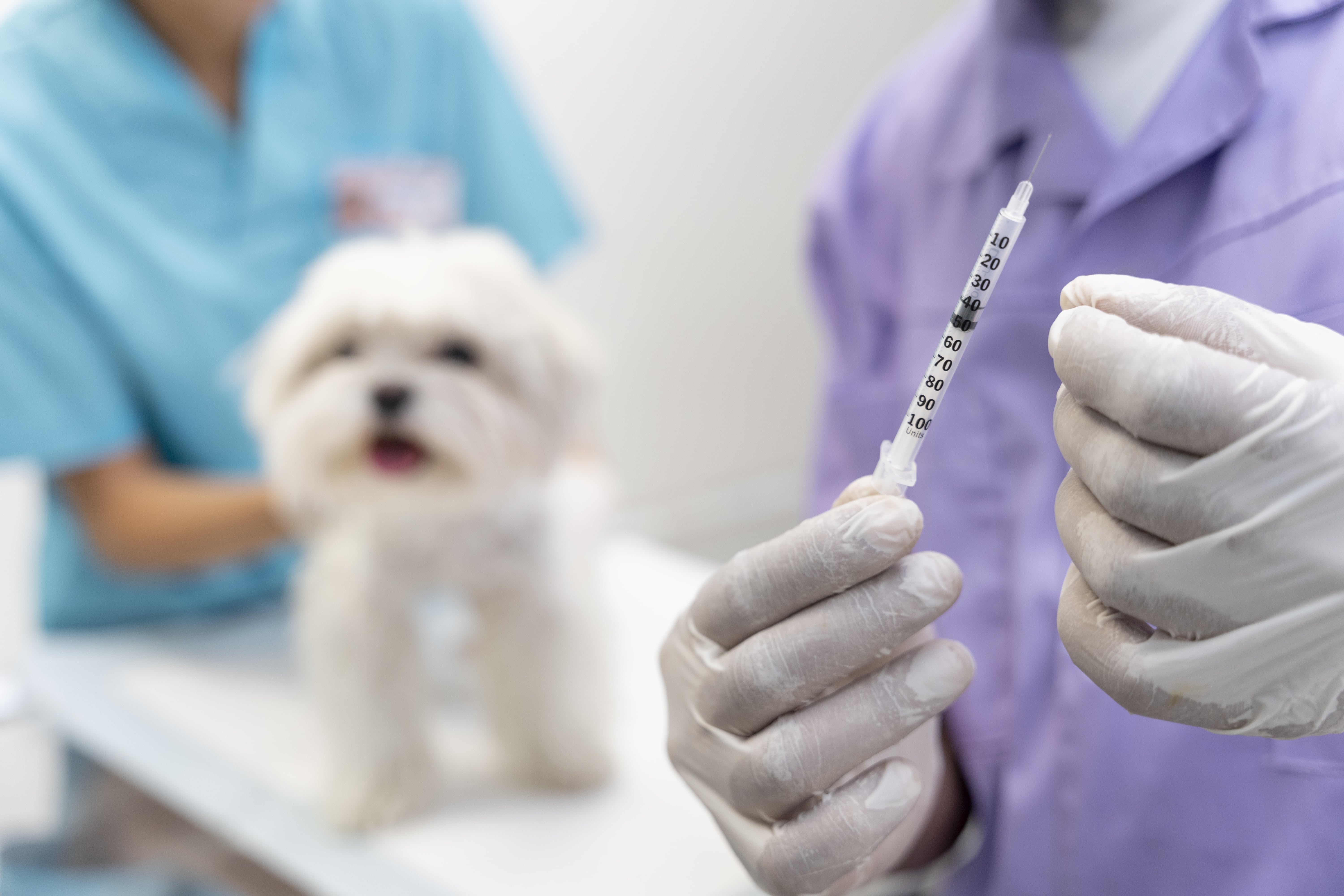Essential Dog Vaccinations: A Guide for Pet Owners

Dogs, known for their friendly and loyal nature, are among the most popular pets globally. Many people choose dogs for their companionship and the various benefits they offer, such as personal protection, assistance for the visually impaired, hunting, and herding livestock. Despite the numerous advantages of dog ownership, there are risks associated with infections, some of which can be severe and even fatal, such as rabies. To prevent these diseases, it is essential to adhere to basic and periodic vaccinations and consult with a veterinarian regularly. Below, we'll outline the most important vaccinations for dogs.
What is Vaccination?
Before discussing the crucial vaccinations for dogs, let's first understand the term "vaccination." Vaccination is a simple and secure method to boost the body's immune system against diseases before being infected. It involves administering appropriate vaccines containing weakened or killed forms of bacteria or viruses. These components do not cause the disease but stimulate the immune system to produce antibodies, which remain in the body. When exposed to the same bacteria or viruses in the future, these antibodies protect the body. Vaccines are usually administered through injections, sometimes orally or nasally, and some may be mandatory, while others are recommended.
Key Dog Vaccinations:
Dog vaccinations vary according to age, and their importance differs between mandatory and optional. Here are the key vaccinations and the suitable age for each:
-
Octuple Vaccination:
-
This vaccine provides protection against eight viral and bacterial diseases:
- Parvovirus: Highly contagious, causing severe diarrhea, vomiting, loss of appetite, and potential death.
- Canine Distemper: A virus affecting the immune system, leading to immune suppression, loss of appetite, throat inflammation, and nasal and eye discharge.
- Canine Parainfluenza: A virus similar to the flu virus, causing cold-like symptoms such as coughing, nasal discharge, and fever.
- Hepatitis: A highly infectious and dangerous virus affecting the liver, causing symptoms like fever, lethargy, diarrhea, vomiting, and abdominal pain.
- Leptospirosis: A bacterial disease transmitted by rodents, affecting the brain, liver, and spleen, causing severe symptoms like high fever, muscle pain, and headache.
- Canine Coronavirus: A highly contagious virus causing inflammation of the small intestine, leading to symptoms such as vomiting, diarrhea, and fever.
- Adenovirus: A virus affecting various organs, including the respiratory system and eyes.
-
Administered to dogs aged 6-8 weeks, followed by a booster shot three weeks later, and then annually.
-
-
Rabies Vaccination:
- Rabies is a deadly virus transmitted through bites, causing neurological symptoms and aggression.
- Administered at 3 months, followed by a second dose at 6 months, then either annually or every 3 years depending on the type of vaccine.
-
Insect Vaccination:
- Protects against ticks and fleas, which can transmit serious diseases.
- Commonly used vaccine: Revolution. Administered from 2 months, with booster doses as per the veterinarian's recommendation.
-
Deworming Vaccination:
- Prevents intestinal worms that cause digestive problems, weight loss, and weakness.
- Common deworming vaccine: Drontal tablets. Administered based on the dog's weight, with booster doses every 3 weeks.
Post-Vaccination Care for Dogs:
After vaccination, it is crucial to ensure that the dog rests as the immune system becomes more active. If the dog doesn't return to normal within 24 hours, it's advisable to consult the veterinarian.
Sources:
- Your Complete Guide to First-Year Puppy Vaccinations
- Puppy and Dog Vaccinations: A Schedule for Every Life Stage
- Vaccines for Dogs
- Dog Vaccinations And Booster Vaccinations
- Puppy vaccinations - what you need to know
Read more blogs: